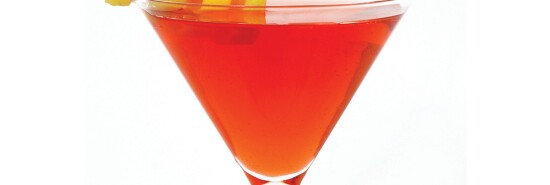
A drink in honor of professor Harvey C. Mansfield
Eric Felten
One of the great philosophy professors of our age is hanging up his academic gown: Harvey C. Mansfield has delivered his last regularly scheduled course lecture at Harvard, where he has taught since 1962. That calls for a toast, and I have one in mind.
An advocate of civilized living, Mansfield has mused on civilized drinking. “We have to drink to live, but the drink does not have to be alcoholic.” That’s a choice we are presented with. So, why would one choose to drink, say, a martini? For some obvious reasons: “because it tastes good and makes you high,” Mansfield has written. “If you had to give a reason for the choice, you might say that the human good is not confined to necessities but by nature includes the care of the soul as well as the appetite. One can neglect these cares, but it is unwise to do so,” as you may “make yourself a bland, unexpressive creature of no interest or significance.”
Mansfield is the preeminent scholar of Machiavelli in our times, and so it is with a gimlet-eyed sense of human nature that Mansfield talks about appetite. An alcoholic beverage may be an essential part of nurturing the soul and avoiding being a dull, uninteresting lump of a person. And yet there are moral hazards that come with indulging.
Scottish Enlightenment thinker David Hume lamented the “avidity” of man, that relentless human trait of striving to get and get more. The urgent urge to acquire, Humes wrote, “is insatiable, perpetual, universal, and directly destructive of society.” Where could Hume have gotten such a grim view of human nature? From Machiavelli, of course.
“It is a very natural and ordinary thing to desire to acquire,” Machiavelli wrote. But what is natural is often deeply frustrating, given that Nature seems to take her cues from Lucy van Pelt place-holding the football for Charlie Brown — the object is always cruelly yanked away. Humans are created, according to Machiavelli, “so that they are able to desire everything and unable to attain everything.” No matter how much one has, “desire is always greater than the power of acquiring.”
Drink, then, presents an opportunity not only for an immediate pleasure but to show restraint. The cocktail hour is a chance to say when and thus to put the lie to the notion that we unlucky humans are insatiable. In his book, Manliness, Mansfield puts it succinctly: “Don’t drink more liquor than you can hold!”
But what to drink?
I have it on good authority that Mansfield, as befits a notable traditionalist, is inclined to drink a martini — gin (but of course) and dry vermouth, straight-up with olives. He has also been known to make a fine Manhattan.
But if we are to celebrate Mansfield’s career, we need a cocktail bespoke-tailored for the task. While it is an unfortunate habit of modern drinks inventors to name their creations with bad puns, it used to be the habit of those concocting an original quaff to name it as an honorific for a notable person. Here is our opportunity to maintain that tradition. Let’s toast the professor’s accomplishment with a drink bearing his name.
What will this drink be? I propose making a variation on one of Mansfield’s favorite drinks. I have taken a Manhattan and doctored it with a bit of bitter Italian liqueur — an amaro made in Milan — as a nod to Machiavelli.
Here’s how to make a Mansfield: Combine with ice, 2 oz. rye whiskey, 1/2 oz. each of sweet vermouth and Ramazzotti amaro, and a dash of Angostura bitters. Stir until very cold, and then strain into a chilled cocktail glass. Garnish with a bit of lemon peel.
Eric Felten is the James Beard Award-winning author of How’s Your Drink?
